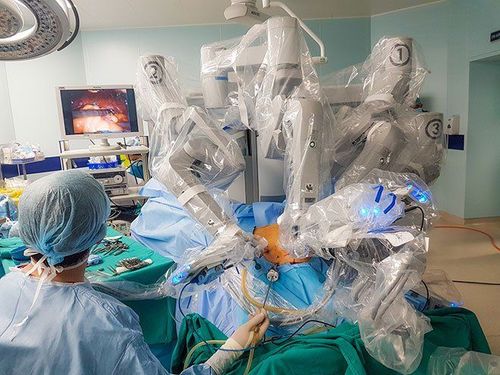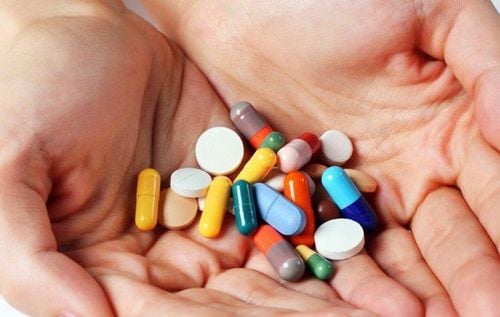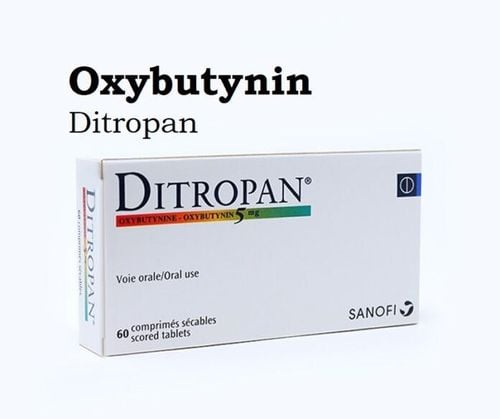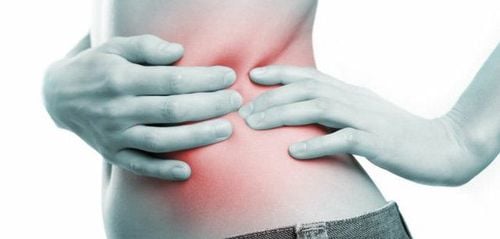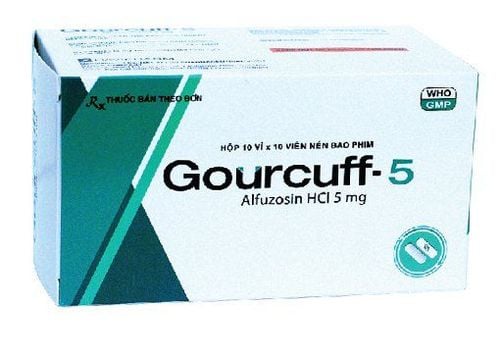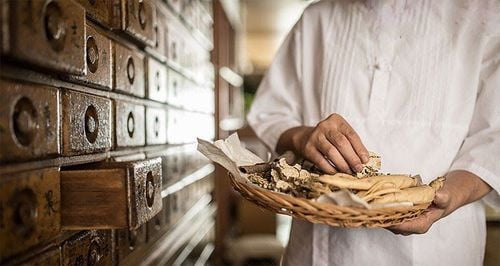This is an automatically translated article.
After surgery for inguinal hernia, the patient needs to be monitored, cared for carefully, properly to quickly recover and prevent bad complications after surgery. Here are the possible complications and ways to reduce them after surgery for inguinal hernia.
1. Complications after surgery for inguinal hernia
Inguinal hernia surgery is a fairly common surgery with almost no risk. However, the reality is that about 10% of cases of hernia return at some point after surgery. About 2-4% of hernias return within three years.
Other potential complications that may occur after surgery for inguinal hernia:
1.1. Early complications Postoperative bleeding Hematoma and fluid in the scrotum affecting blood supply to the testicles Painful swelling and bruising of the testicles (in men) Pain and numbness in the groin area due to a damaged nerve or get stuck during surgery.
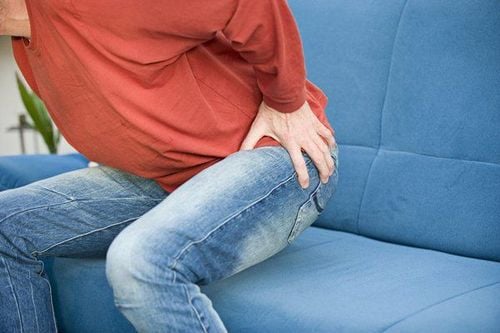
Đau và tê ở vùng bẹn là biến chứng sớm sau phẫu thuật thoát vị bẹn
Damage to the vas deferens – the tubes that carry sperm to the testicles. Infection of the incision site Obstruction of testicles due to strangulation of the spermatic cord Complications after surgery for inguinal hernia are at higher risk in cases where the patient is over 50 years old or has other comorbidities such as cardiovascular disease or respiratory disease. steam.
1.2. Late complications Patients after surgery may experience late complications such as:
Recurrent hernia: This complication is common in the elderly, direct inguinal hernia. Persistent pain: Pain usually subsides after 2 years. This complication is common in open anterior direct surgery. Testicular atrophy and decreased sexual ability due to compression on the blood vessels that nourish the spermatic cord and testicles lead to lack of nutrients and damage. Depending on the method of surgery for inguinal hernia, especially open surgery, it may cause decreased sensation below the surgical scar or in laparoscopic surgery on the outside of the thigh due to irritation or damage to regional sensory nerves.
2. What to abstain from inguinal hernia surgery?
After the operation, to have the best recovery time, the patient should arrange to rest for a few days at home, and have a lifestyle and nutrition regimen suitable for his or her physical condition. After surgery for inguinal hernia, the patient does not need to abstain from any food to provide all the necessary nutrients for the body to develop normally.
Should not eat too much at once If the incision is still edematous, temporarily the patient should not eat sticky foods until the edema is gone Drink lots of water to provide the necessary amount of water for the body Limit consumption of restricted products dairy products such as cheese, butter, ice cream, etc. Should choose a diet rich in fiber. However, fiber should be added slowly after hernia surgery, otherwise it will cause bloating, flatulence and discomfort. Eat a lot of green vegetables and fresh fruits rich in fiber and abundant vitamins for the body, to not constipated. If you are constipated, you can use enemas, but you should not try to push because it can cause the inguinal hernia to return. Should abstain from spicy, alcohol. Should eat crabs, shrimps to heal wounds quickly

Uống nhiều nước để cung cấp đủ lượng nước cần thiết cho cơ thể
3. How to reduce complications after surgery for inguinal hernia?
Although complications after surgery for inguinal hernia can occur in anyone, we can reduce complications by:
Early inguinal hernia surgery: If treated promptly and properly, it will increases the chances of successful treatment. Patients can shorten hospital stay and rest. Choosing a reputable surgical address: When performing inguinal hernia surgery at reputable hospitals, patients will be operated directly with a team of good doctors, modern medical equipment will help limit the following complications. inguinal hernia surgery. Careful post-operative care: After surgery, the patient is well taken care of, the incision is cleaned, and the dressing is changed daily to help limit inflammatory complications. Eating and living properly: Patients after surgery for inguinal hernia need to pay attention to eat enough to enhance the body's nutrition through daily meals; Need to rest, limit vigorous exercise. Patients can exercise every day, but with a moderate level, avoid vigorous exercise that adversely affects health. Usually, the doctor makes an appointment for a follow-up visit about 7-10 days after surgery. The doctor will check to see if the inguinal hernia incision has healed completely or in special cases the patient must take antibiotics for a few more days. You are also given detailed advice on when you can resume sports, heavy labor and lifting activities.
Vinmec International General Hospital is a leading unit in the treatment of inguinal hernia with many advantages:
Comprehensive care and treatment model, enhanced recovery after surgery, patients recover quickly , quickly return to daily activities: eating, walking, exercising, good postoperative pain relief, short hospital stay (about 1 day). Vinmec's Hybrid operating room is the most modern operating room system in the world today, integrating operating room and advanced imaging equipment (CT scan, MRI, ultrasound...) to help reduce time. surgery and bring the best surgical results to the patient. In anesthesia resuscitation, Vinmec adheres to anesthesia protocols, anesthesia safety guidelines, anesthesia checklists for 100% of surgeries to minimize incidents and unwanted effects.
Please dial HOTLINE for more information or register for an appointment HERE. Download MyVinmec app to make appointments faster and to manage your bookings easily.




